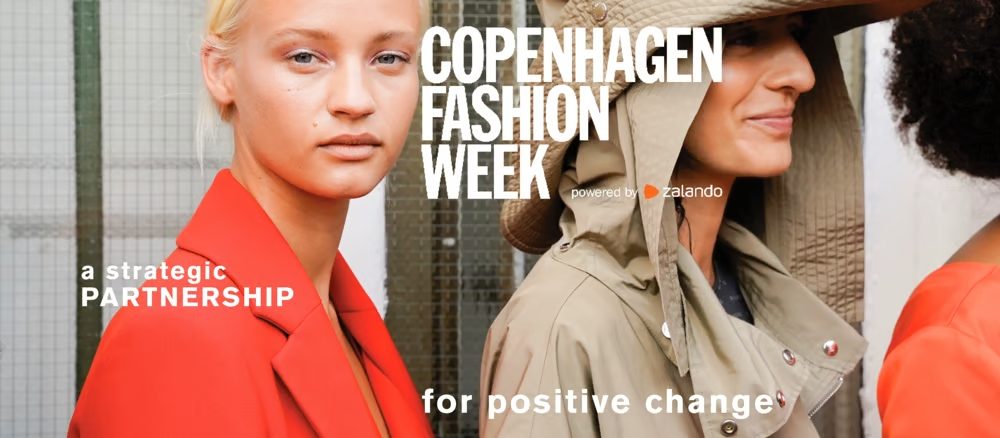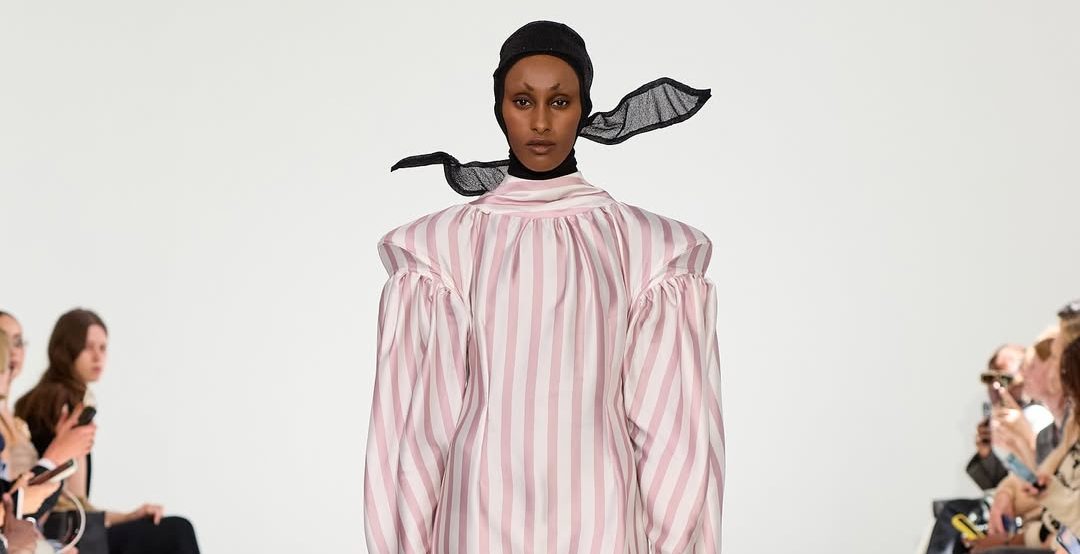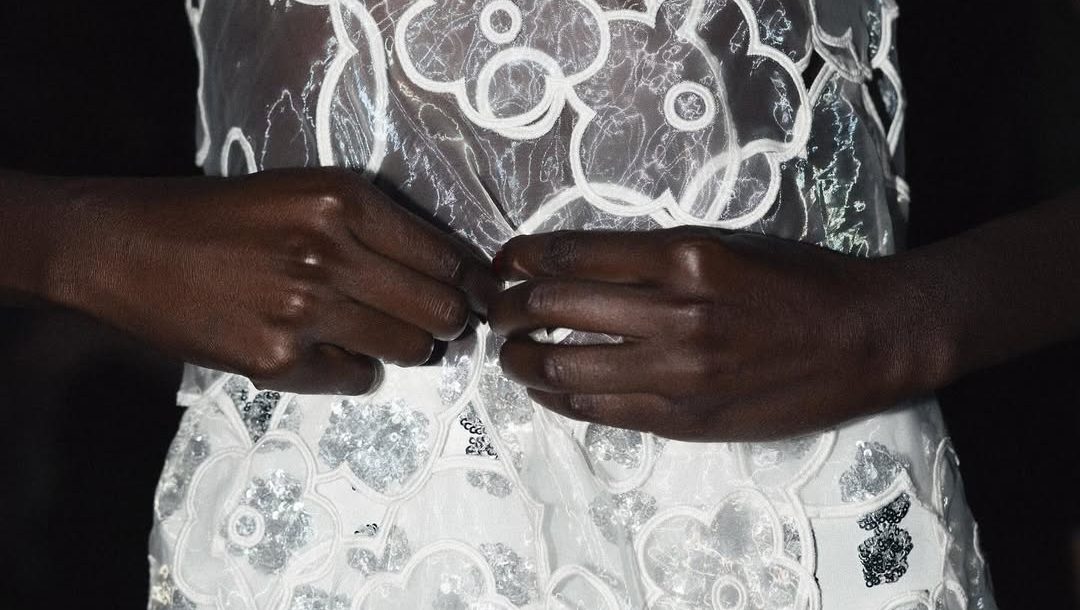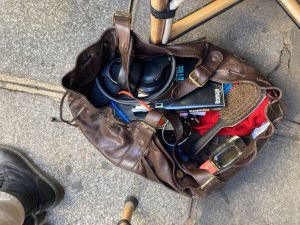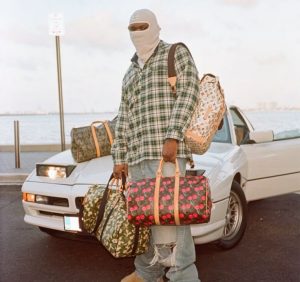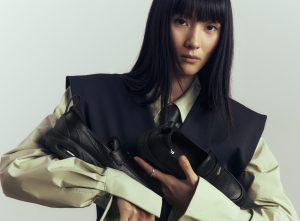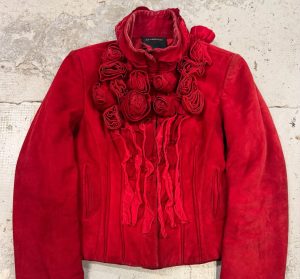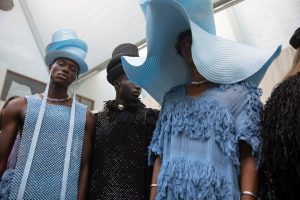Copenhagen Fashion Week aims to position itself as the world’s most responsible fashion week. Eco-conscious labels, zero-waste set designs, strict selection criteria… But between stated ambitions and the reality of its partnerships, is the event really as sustainable as it claims?
Access Subject to Conditions
Since 2020, CFW has implemented a strict set of specifications for brands wishing to join its program. These criteria, grouped under the name Sustainability Requirements, aim to reduce the event’s environmental impact, limit waste, and encourage more ethical production practices. To take part, each fashion house submits its application to a jury dedicated to CSR (Corporate Social Responsibility) issues, which evaluates entries based on 19 criteria.
Among the minimum requirements:
- At least 50% of the collection must be certified and made from next-generation sustainable materials, recycled or upcycled fabrics, or deadstock.
- Fur free: the use of fur is prohibited.
- Zero single-use plastic, whether in stores, packaging, or backstage.
- Runway set designs must be zero waste.
- Brands must guarantee decent working conditions throughout their production chain: no forced labor.
- Model casting must reflect inclusive commitments.
This model is inspiring other European capitals such as Amsterdam, Berlin, and Oslo. To date, London is the only major fashion week to have officially adopted these standards, although they apply solely to emerging designers. France, meanwhile, is lagging, despite local initiatives like Marseille’s Slow Fashion Week, which aligns with this movement.
Zalando Honors the Commitment of Bubu Ogisi
At this year’s edition, the Zalando Visionary Award was presented to Iamisigo, the label founded by Nigerian designer Bubu Ogisi. She receives €50,000 along with a six-month mentorship program to support the growth of her brand, which already has an international presence.
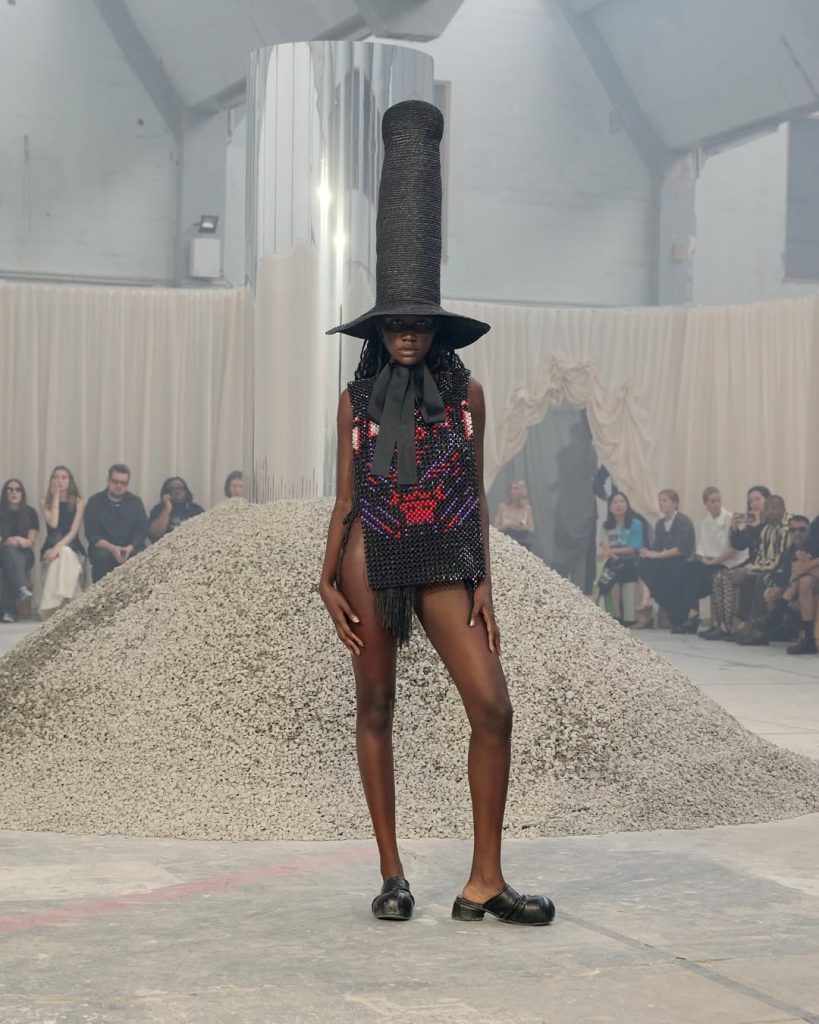
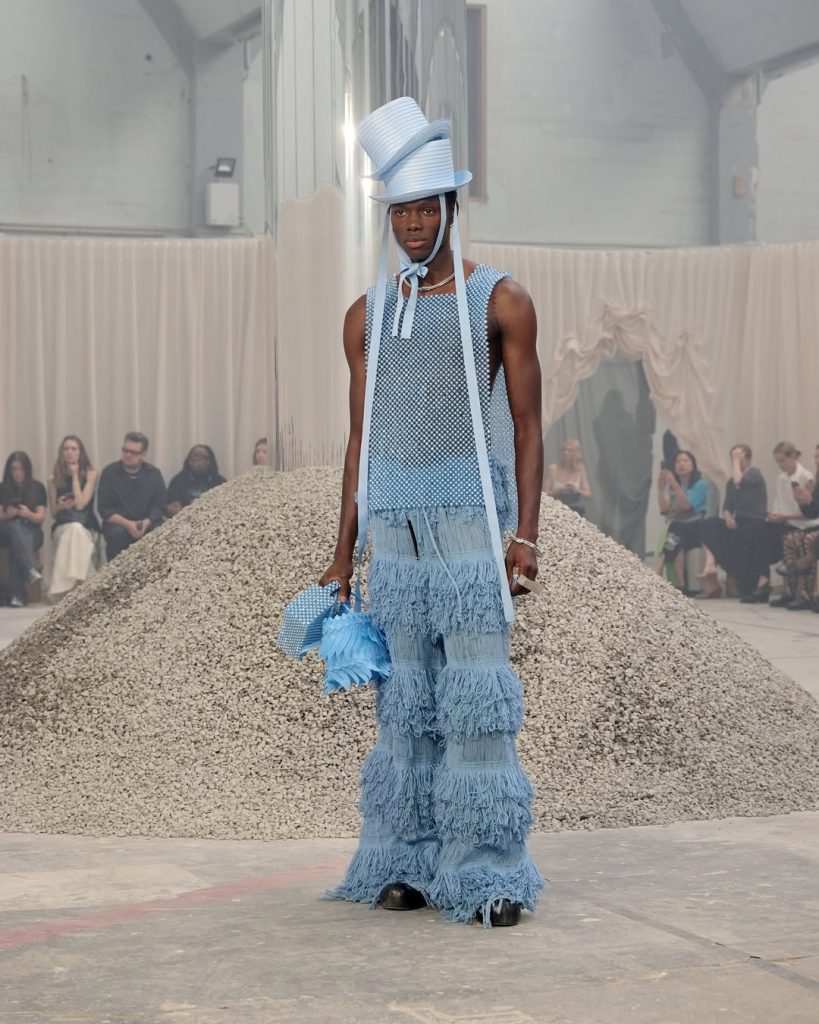
Her collection, vibrant and rich in colour, embodies a deeply artistic vision of fashion. On her website, the expression ‘wearable art’ perfectly captures the essence of her creations. She works with reclaimed materials, exploring a committed wardrobe at the crossroads of design and activism.
Through its silhouettes, Iamisigo pays tribute to ancestral techniques from across the African continent, from Ghana to Kenya, weaving artisanal heritage into an inherently political creative process. The brand’s approach seeks to reconcile environmental concerns with post-colonial reflection, shaping a fashion that is at once contemporary, conscious, and rooted in Pan-Africanism.
A Controversial Sponsor
On the surface, Zalando positions itself as a key player in the sector’s ecological transition. In 2023, the platform announced it would only sell brands meeting eco-responsible criteria. A major clean-up intended to cover the 2,500 brands in its catalogue, based on factors such as environmental impact, human rights, and pay equity.
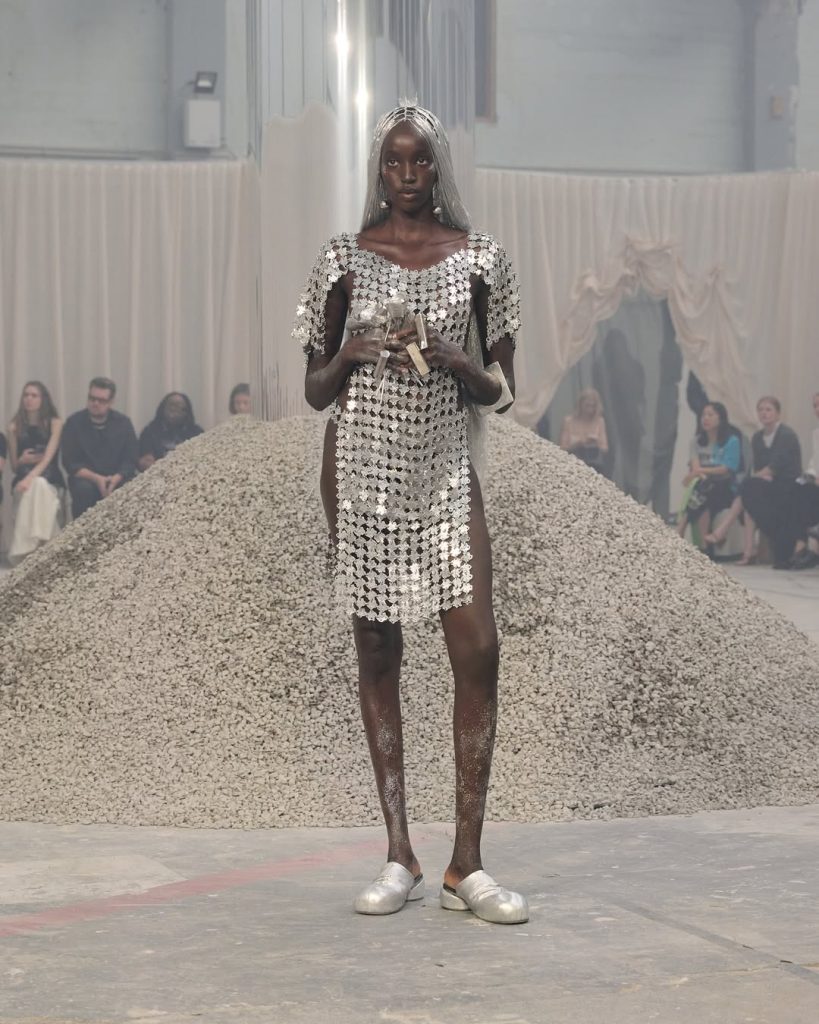
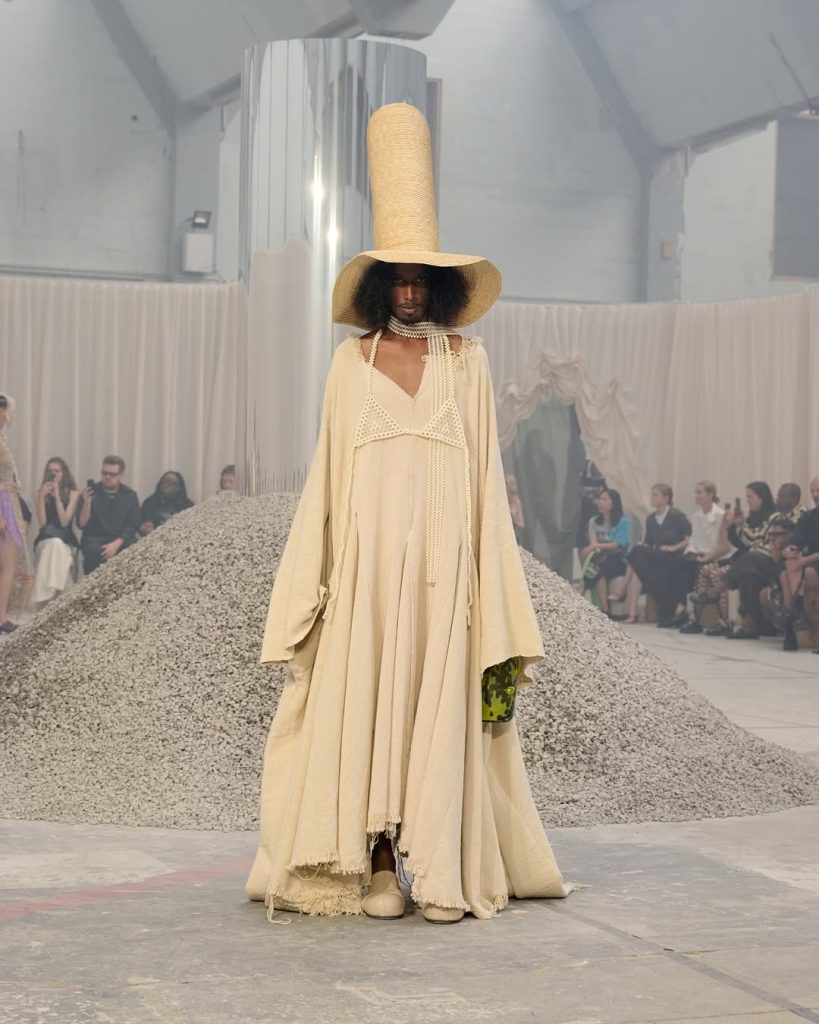
The company has also pledged to reduce its carbon footprint by 80% by 2025 for its internal operations. This commitment is backed by 90% of its partners, aligned with the goals of the Paris Agreement through the Science Based Targets Initiative.
“But behind this ambitious messaging, the reality is far more nuanced. In 2024, the European Commission called out Zalando for greenwashing, forcing it to remove misleading sustainability labels from its product pages. Worse still, in 2021, its carbon footprint was twice that of Iceland.
Copenhagen Fashion Week plays an important role in transforming the fashion industry. Its standards exert positive pressure on brands, and its influence is beginning to be felt in other capitals. But the choice of its partners, notably Zalando, raises contradictions. It is proof that ethical fashion remains a work in progress, where stated ambitions must still be matched by complete transparency.


